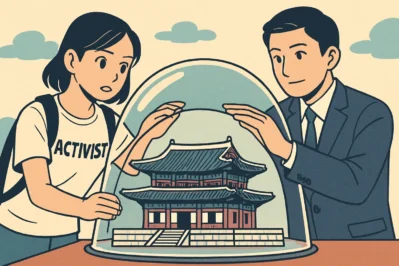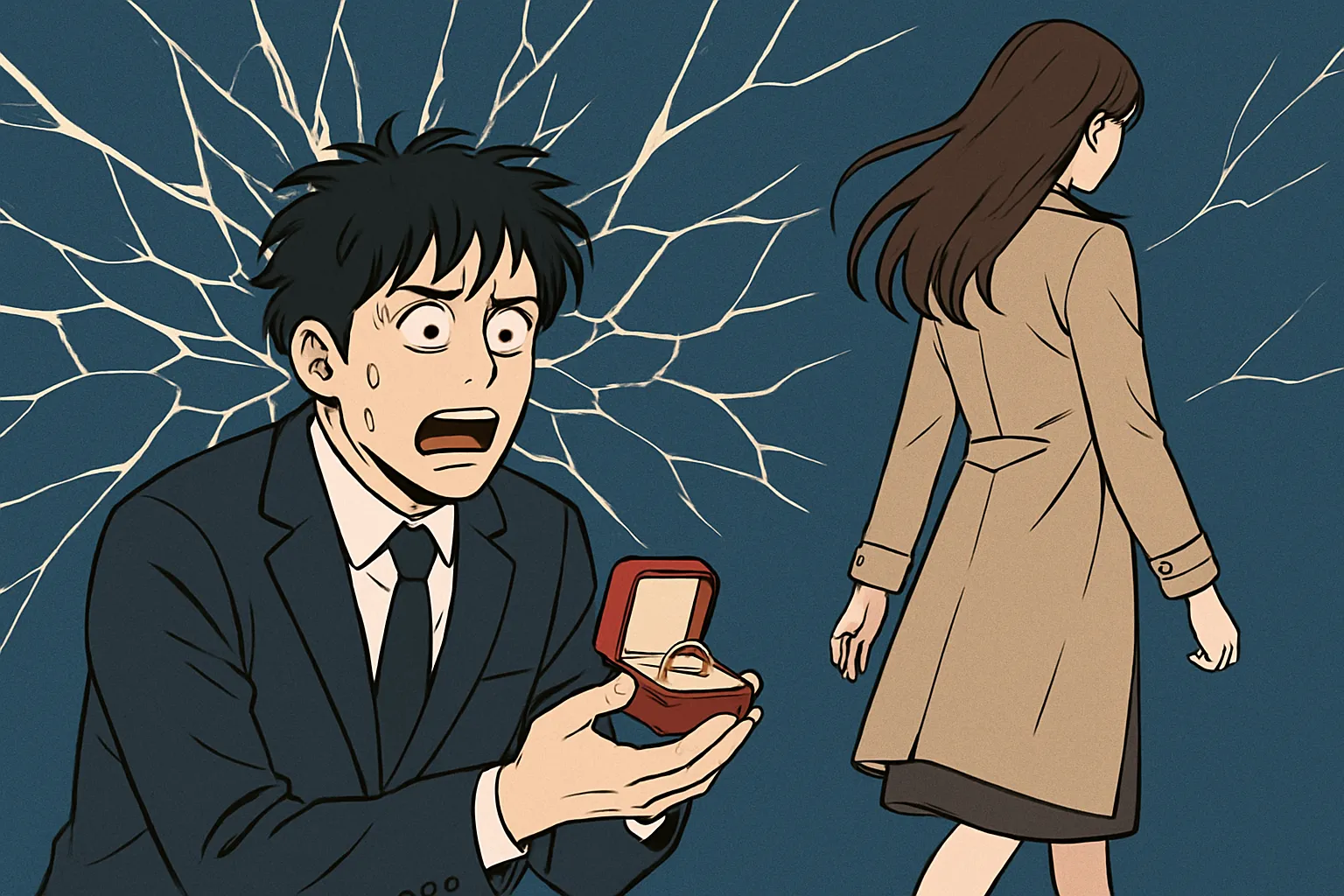From Tourist to Advocate: Discussing Heritage Preservation in Korean
Hello! Welcome to Maeil Hangeul, the place to upgrade your Korean skills!
Are you ready to move beyond “This is delicious!” and “Where is the subway station?” Today, we’re diving into a topic that will allow you to engage in deep, meaningful conversations: the role of NGOs in preserving cultural heritage. This is perfect for when you want to discuss social issues, understand news articles, or simply share your opinions on a more profound level.
Nowadays in Korea, there’s a growing consciousness, especially among younger generations, about sustainable tourism. It’s no longer just about snapping photos at famous palaces. People are actively seeking ways to support local communities and protect the very heritage they’ve come to admire. Understanding how to talk about this movement will make you sound not just fluent, but culturally and socially aware. Let’s get started!
Key Expressions for the Conscious Traveler
Here are some advanced phrases that will help you discuss cultural preservation like a pro.
1. -는 데에 중추적인 역할을 하다 (neun de-e jungchujeogin yeokhareul hada)
- Pronunciation [Romanization]: neun de-e jung-chu-jeo-gin yeok-ha-reul ha-da
- English Meaning: To play a pivotal/central role in ~ing.
- Detailed Explanation: This is a sophisticated and formal expression used to emphasize the critical importance of a person, group, or action in achieving a certain outcome. 중추적 (jungchujeok) means “pivotal” or “central,” like the spinal cord. You’ll often see this phrase in news reports, academic papers, and formal presentations. It’s the perfect way to describe the significant impact of an NGO.
2. 민관 협력 (mingwan hyeomnyeok)
- Pronunciation [Romanization]: min-gwan hyeom-nyeok
- English Meaning: Public-private partnership (PPP); cooperation between the civil sector and the government.
- Detailed Explanation: This is a crucial term in any discussion about civic society. 민 (民) refers to ‘the people’ or the private/civilian sector, while 관 (官) refers to the government. 협력 (協力) means ‘cooperation’. This term elegantly captures the collaborative effort needed to tackle large-scale issues like heritage preservation.
3. 인식 제고 (insik jego)
- Pronunciation [Romanization]: in-sik je-go
- English Meaning: Raising awareness.
- Detailed Explanation: While a beginner might say 알리다 (allida), which means ‘to inform,’ 인식 제고 is a much more formal and impactful term. 인식 (認識) means ‘awareness’ or ‘perception,’ and 제고 (提高) means ‘to raise’ or ‘to enhance.’ This is the standard term used by organizations and in the media when talking about campaigns to change public perception.
4. -는다고 해도 과언이 아니다 (neundago haedo gwaeoni anida)
- Pronunciation [Romanization]: neun-da-go hae-do gwa-eo-ni a-ni-da
- English Meaning: It is no exaggeration to say that…
- Detailed Explanation: This is a powerful rhetorical phrase used to add weight and conviction to your statement. It shows that you strongly believe in what you’re saying. Use it when you want to make a bold claim that you feel is entirely justified. It immediately makes your argument sound more persuasive and well-considered.
Example Dialogue
Let’s see how these expressions work in a real conversation. Imagine two friends, Alex and Min-jun, are discussing a news article about preserving the ancient Seowon (Neo-Confucian academies) of Korea.
Alex: 이 기사 읽어봤어? 몇몇 서원들이 관리 부실로 훼손될 위험에 처해 있대.
(Have you read this article? It says some of the Seowon are at risk of damage due to poor management.)
Min-jun: 정말 안타깝다. 서원은 한국의 정신문화를 대표한다고 해도 과언이 아닌데.
(That’s such a shame. It’s no exaggeration to say that the Seowon represent Korea’s intellectual and cultural heritage.)
Alex: 맞아. 그래서 지역 NGO들이 나섰나 봐. 이 단체들은 서원의 가치를 알리는 인식 제고 캠페인을 주도하고 있대.
(I agree. That’s probably why local NGOs have stepped up. They’re leading campaigns for raising awareness about the value of the Seowon.)
Min-jun: 좋은 시도네. 결국 효과적인 보존을 위해서는 민관 협력이 필수적이잖아. 정부의 지원과 시민 사회의 참여가 모두 필요하지.
(That’s a great initiative. Ultimately, public-private partnership is essential for effective preservation. You need both government support and the participation of civil society.)
Alex: 동감이야. 이런 NGO들이야말로 사라져가는 유산을 지키는 데에 중추적인 역할을 하는 것 같아.
(I feel the same way. It seems these NGOs are the ones playing a pivotal role in protecting our vanishing heritage.)
Cultural Tip & Trend Deep Dive
In Korea today, the concept of “가치 소비” (gachi sobi), or “value-based consumption,” is a major trend among millennials and Gen Z. This isn’t just about buying eco-friendly products; it extends to how people travel. Many now prefer “공정 여행” (fair travel) or “책임 여행” (responsible travel), which involves supporting local economies and respecting cultural and natural environments.
When you use phrases like 민관 협력 and 인식 제고, you’re tapping directly into this modern Korean mindset. You’re showing that you understand the country’s contemporary social dialogues. For instance, you might see news headlines about the “문화재지킴이” (Munhwajae Jikimi – Cultural Heritage Keepers) program. This is a perfect real-world example of 민관 협력, where corporations and citizen groups “adopt” a heritage site, playing a pivotal role in its maintenance. Knowing these terms allows you to read, understand, and discuss these important national movements.
Let’s Practice!
Time to put your new knowledge to the test!
- Fill in the Blank:
시민 단체는 멸종 위기 언어를 보존하________________________.
(The civic group plays a pivotal role in preserving the endangered language.) -
Make a Sentence:
Using the phrases 인식 제고 (raising awareness) and -는다고 해도 과언이 아니다 (it’s no exaggeration to say that…), write one sentence about why protecting the environment is important.
Great job today! You’ve learned some incredibly useful expressions for discussing important topics in Korean.
Now it’s your turn! Leave a comment below using one of today’s phrases. Tell us about an important cultural heritage site in your country and the efforts to preserve it. We can’t wait to read your thoughts






